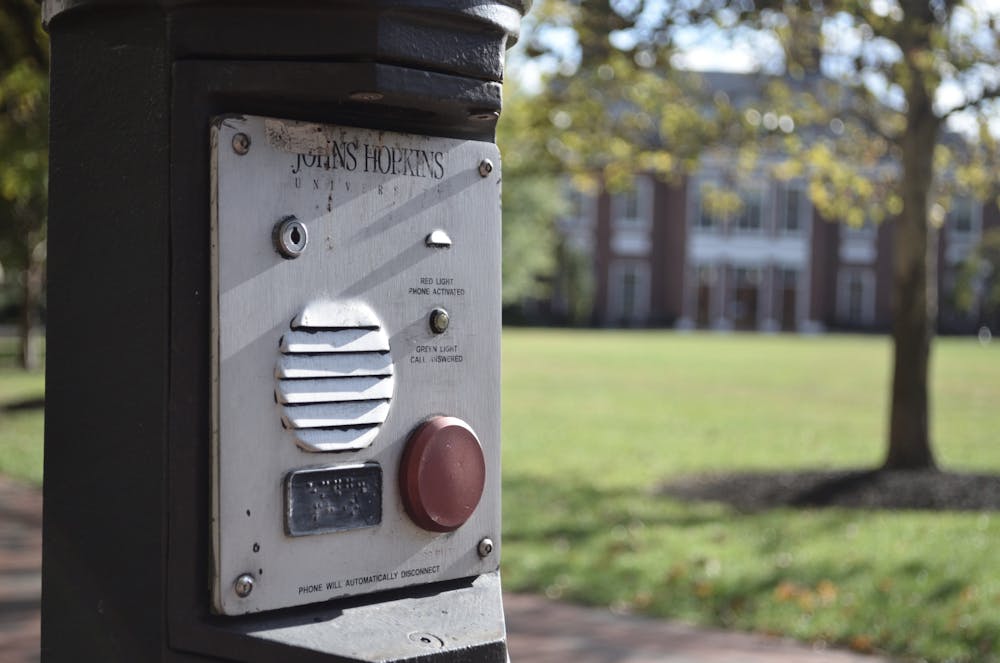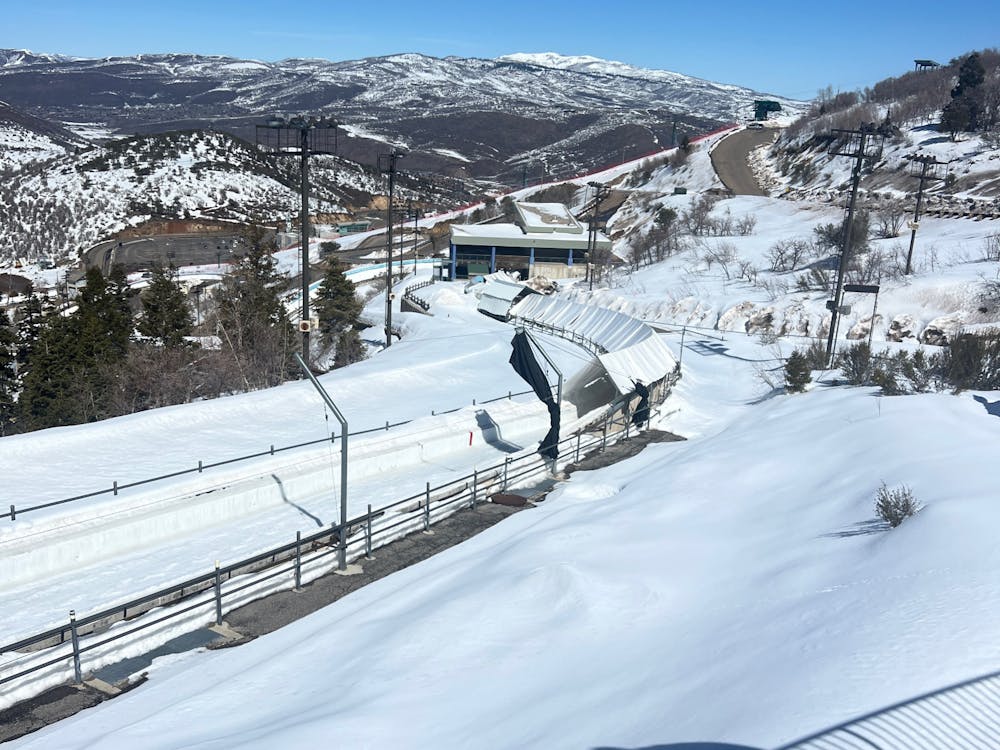On Saturday, Oct. 18 the Office of Homewood Public Safety notified the University community about an attempted sexual assault on Decker Quad. According to Public Safety, an unknown man, about 30 years old, approached a female student for directions on Saturday evening and assaulted her, attempting to remove her clothes. Following the report, the Baltimore Police Department (BPD) began investigating the case as an attempted rape with cooperation from the Johns Hopkins Police Department (JHPD) and Public Safety.
Students reported feeling unsafe on campus in light of the event. In an email to The News-Letter, sophomore Reshmita Nayudu explained her new safety concerns.
“I think it’s incredibly frightening as a woman on campus because my safety is no longer guaranteed,” Nayudu commented. “How can parents feel comfortable sending their kids here if their safety isn’t a given on campus?”
Collectively, the Sexual Assault Resource Unit (SARU) members described the event’s repercussions in an email to The News-Letter, raising concerns that the University has not taken sexual assault incidents similar to Saturday’s attempt seriously.
“Students have been worried about crime outside campus grounds, but very near campus/off-campus housing. Since the summer, there have been increased reports of groping/inappropriate touching that have caused students to feel unsafe. Our members say they are not surprised this happened and are curious why other sexual assault related incidents haven't been taken as seriously by the University,” a SARU spokesperson wrote.
On Sunday, Oct. 19 JHPD Chief Branville G. Bard emailed the University community with updates of the case. According to Bard, the University provided security footage to the BPD after all three departments responded to the Blue Light alert at the time of the attack. The BPD shared an image from surveillance footage of the person of interest.
Since the case, Bard said there will be increased patrols on campus overnight, including greater presence from Public Safety, the JHPD, the BPD and Allied Universal officers. Students have been advised to contact Public Safety any time they feel unsafe.
SARU, however, expressed uncertainty about the safety brought by security, specifically Allied Universal officers. According to SARU members, students have observed the officers acting negligently to student danger and unprofessionally in their role.
“At our meeting, there were many first and second-hand reports of students being catcalled by Allied Universal (yellow-vested security officers)” a SARU spokesperson wrote. “Students also report seeing them smoking/vaping on shift, as well as having two earbuds/headphones in and being on the phone, instead of being a watchful/safe/protective presence. It feels as if Hopkins is taking action just to take action, without consideration if it is helpful action or not.”
On Wednesday, Oct. 22 BPD and JHPD officials hosted a press briefing on the Beach, announcing that the BPD arrested Raymond Willis Lunn on Tuesday in connection with the incident, with assistance from the JHPD and an anonymous tip. According to BPD Col. John Herzog, Lunn is a repeat violent offender and a registered sex offender who currently faces charges of assault and attempted rape.
“Lunn, a registered sex offender, has an extensive criminal history in the neighboring jurisdiction, including prior convictions for attempted rape, armed robbery, kidnapping, assault, burglary, auto theft, violation of probation and more. He's a repeat violent offender, who has served multiple prison sentences,” Herzog stated. “Investigators continue to review any potential sexual assaults in the area to determine if there may be any connections to Lunn.”
Herzog added that the BPD is still investigating whether Lunn had been on the Homewood Campus previously. When asked about the tip received by the BPD, Herzog said the contents must remain confidential for the investigation, but that the tip led officials directly to Lunn.
Bard concluded the briefing by emphasizing a main goal of his unit: addressing any crimes that occur on campus.
“I want to emphasize that we'll continue to use every available resource at our disposal to deal with anyone who intends to commit a crime on or near our campus,” Bard said. “The safety of our community is paramount.”
In the future, SARU recommended the University to brighten campus grounds at night to increase safety precautions.
“All of the quads are dark at night, and making them brighter would increase safety. Especially with non-affiliates around (like construction workers) on campus due to construction or other events, seeing dark figures and not being able to identify them due to dark conditions makes students uneasy,” they wrote.
SARU also highlighted the importance of recognizing sexual assault and supporting sexual violence victims outside of media coverage and public recognition.
“This particular sexual assault was violent, public, and by a non-affiliate, which created a big response from the community and University. Sexual assault occurs on our campus, even when it is not publicized, and affects many students.”
SARU is an organization promoting the Sexual Assault Resource Connectors, who are peer supporters trained in trauma-informed response and resource navigation for sexual violence victims.
In all community emails, Public Safety and the JHPD promote University resources for mental health and sexual assault crises. These include, but are not limited to, evening security escorts, the LiveSafe app to communicate with Public Safety officers, crime prevention tips, confidential sexual violence support (including the 24-hour Sexual Assault Help Line at (410) 516-7333), the Office of Institutional Equity’s online report form and the Employee Assistance Program. In the event of an emergency, Public Safety advises students to call 911. For non-emergencies, students can reach Public Safety at (677) 208-1200.





